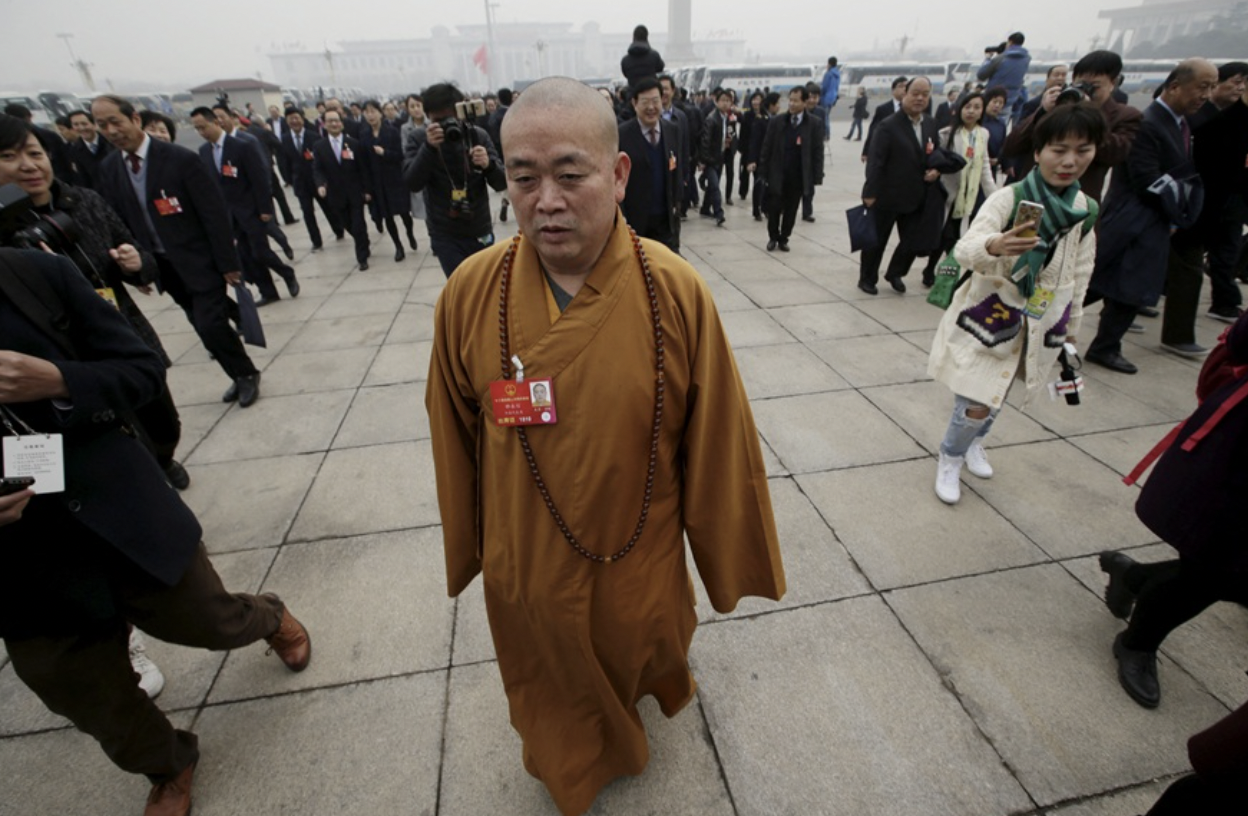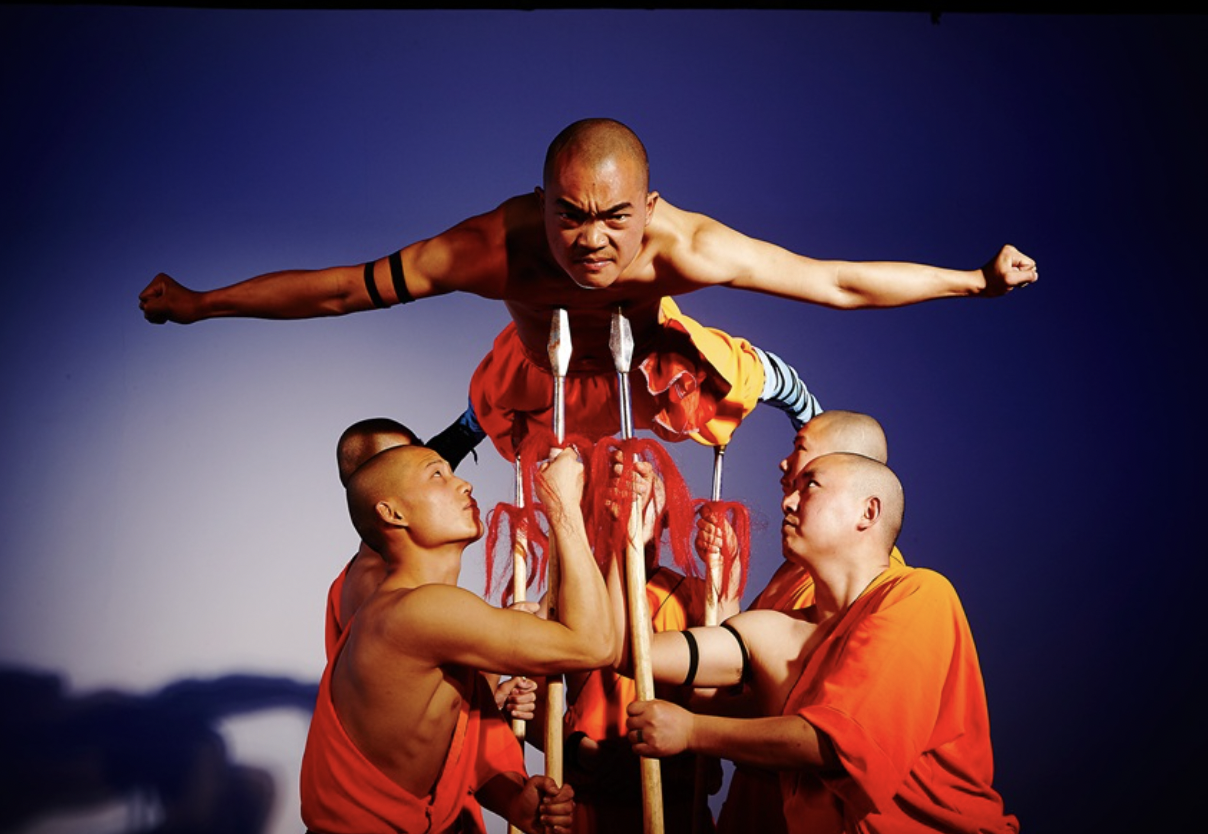On 27/7, the Shaolin Temple Management Office announced that the former abbot, Shi Yongxin, was facing allegations of serious violations of Buddhist precepts and was under investigation by multiple agencies.
On 29/7, Shi Yinle, the abbot of Baima Temple in Henan, was appointed as his replacement, tasked with addressing the crisis. A Chan Buddhist monk with a rigorous background in Buddhist studies, Abbot Shi Yinle is determined to halt the commercialization of Buddhism. He mandated that Shaolin monks return to "original Buddhism," which combines monastic practice with manual labor. This model had already been implemented at Baima Temple.
 |
Former Abbot Shi Yongxin walks towards the Great Hall of the People to attend a session in Beijing, China. Photo: Think China |
Former Abbot Shi Yongxin walks towards the Great Hall of the People to attend a session in Beijing, China. Photo: Think China
Shaolin Temple has eliminated criticized goods and services. Donation boxes have disappeared, despite being a major source of income for the temple for decades. Commercial activities like overseas kung fu performances and the temple's Taobao shop have ceased. Monks are no longer seen holding QR payment codes, printed materials are now offered for free, and expensive "peace" and "happy family" incense sticks have been removed. Visitors to Shaolin Temple now simply queue for free incense.
Abbot Shi Yinle has reinstated the traditional balance between cultivation and meditation. Monks at Shaolin Temple must chant scriptures at 4:30 a.m., followed by farm work, meditation, or martial arts practice in the afternoon. Mobile phones are confiscated, entertainment is prohibited, and permission is required to leave the temple on weekends.
"I'm used to reading scriptures on my phone. Having my device suddenly confiscated feels like losing an arm," a young monk complained on Weibo. "I thought receiving donations via QR code was part of monastic practice, but now I have to go out and harvest rice," said a monk who left Shaolin Temple.
 |
Shaolin monks perform on stage in China. Photo: Think China |
Shaolin monks perform on stage in China. Photo: Think China
In recent days, Chinese netizens have been actively discussing the five initiatives that Shi Yinle implemented from his first day in office. The majority support the monks who left Shaolin Temple, saying that "these fake monks finally met a true abbot." People believe that monks should not be more concerned with money than with Buddhist scriptures.
Many hope that Shi Yinle will eliminate negative influences and steer the temple back on track. However, many also worry that this model may not be suitable for Shaolin Temple. Shi Yinle's reforms will significantly reduce income and increase operating costs, potentially leading to a deficit.
During Shi Yongxin's tenure, Shaolin Temple was estimated to earn over one billion CNY annually through 795 brands and over 60 global branches.
"Shi Yongxin maintained an entire industry around the temple, but Shi Yinle only wants to nurture the souls of the monks," one netizen commented.
Ngoc Ngan (According to Think China)












